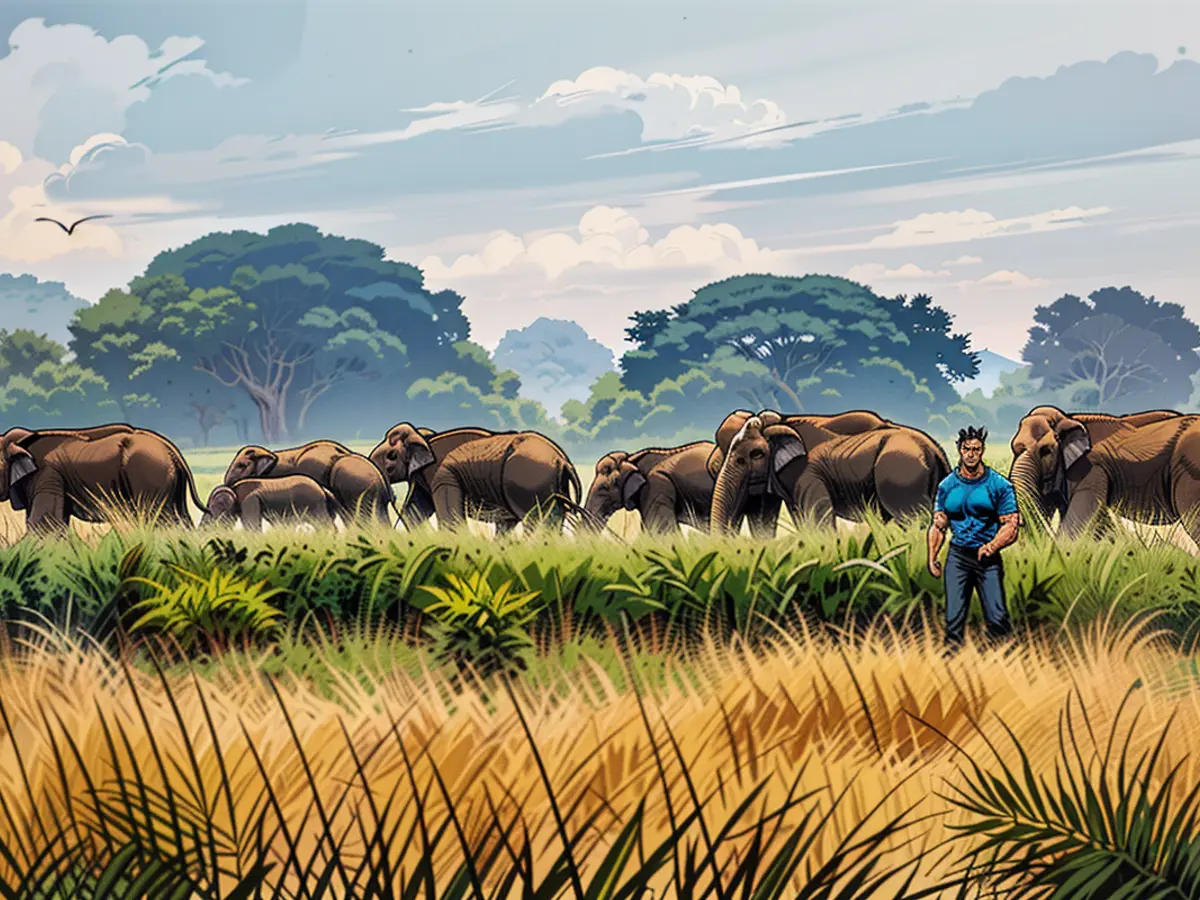Trying to avoid an elephant stampede? There’s an app for that
While estimates vary, such conflicts in the state led to more than 200 elephant deaths and 400 human deaths from 2017 to 2022, according to data from Aaranyak, a local conservationist group that developed the “Haati App” or “Elephant App” in collaboration with the Assam government.
The app is designed to give villagers and farmers a vital heads-up when wild elephants are close to human settlements, aiming to help people avoid dangerous encounters.
“Fueled by a combination of a population boom and poverty, man has expanded his frontiers, while animals have found their jungles shrinking,” said Aaranyak, which in Sanskrit means “to belong to the forest.”
Assam is home to over 5,000 wild elephants, the second highest in the country after Kerala in the southwestern tip of India, which has around 6,000, according to a 2017 report by the Ministry of Environment, Forests & Climate Change.
Fewer than 50,000 Asian elephants are left in the world, and they are listed as endangered species on the International Union for Conservation of Nature’s (IUCN) Red List. Indian elephants are a subspecies of Asian elephants native to the country, and there are about 40,000 left in the wild, according to the World Wide Fund for Nature (WWF).
While India has over 100 national parks and around 30 elephant reserves, many of these animals are losing their natural habitats due to increased farming and human activities, conservation groups have long warned.
Elephants are large and often travel in herds, and about half a million families in India are affected by crop-raiding elephants each year, according to WWF.
Some farmers resort to culling elephants to protect their families as any encounter with animals that weigh at least 5 tons can quickly become deadly.
On World Elephant Day, which fell on Monday, Indian Prime Minister Narendra Modi affirmed the government’s effort to provide suitable habitat for elephants to thrive.
“For us in India, the elephant is linked to our culture and history, too. And it’s gladdening that over the last few years, their numbers have been on the rise,” Modi said on Facebook.
However, illegal encroachment into protected areas and forest clearing for roads and infrastructure development have led to significant habitat loss and fragmentation for elephants, which are sacred symbols in Hinduism and Buddhism.
Wider issue in Asia
Elephants have lost almost two-thirds of their habitat across Asia, as a result of hundreds of years of deforestation and increasing human use of land for agriculture and infrastructure.
The study in the journal Scientific Reports published in April found India to be the country with the second greatest decline in elephant habitats, with 86% of suitable land lost between 1700 and 2015. That’s second only to China, which lost 94% over the same period.
The Asian elephant is found across 13 countries across the continent, but their forest and grassland habitats have been eroded by more than 64% – equating to 3.3 million square kilometers (1.2 million square miles) of land – since 1700, researchers said. That is roughly twice the size of Alaska.
The world is home to fewer than 50,000 Asian elephants, with over 5,000 of them residing in Assam, making it the second highest population after Kerala in India.
Elephants, considered sacred symbols in Hinduism and Buddhism, have lost almost two-thirds of their habitat across Asia, with India and China experiencing the second and first greatest declines respectively.







